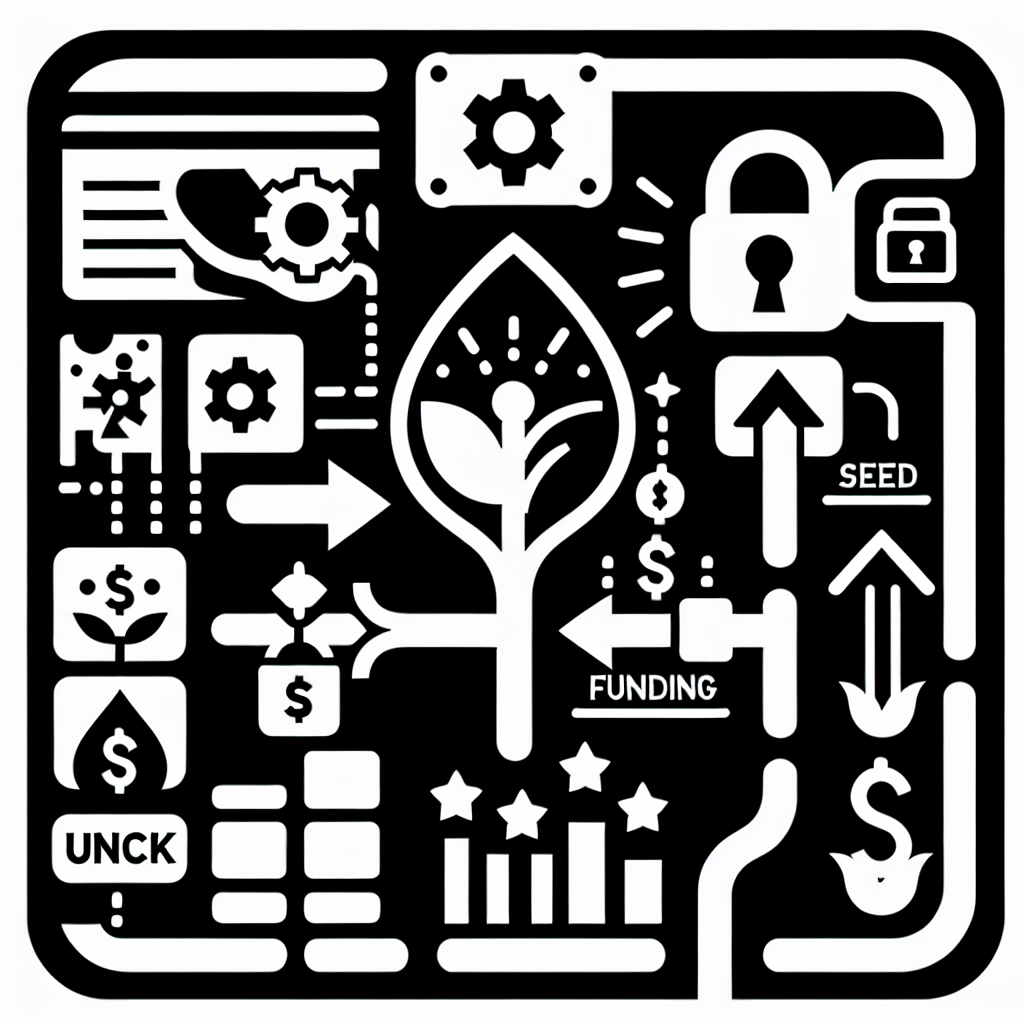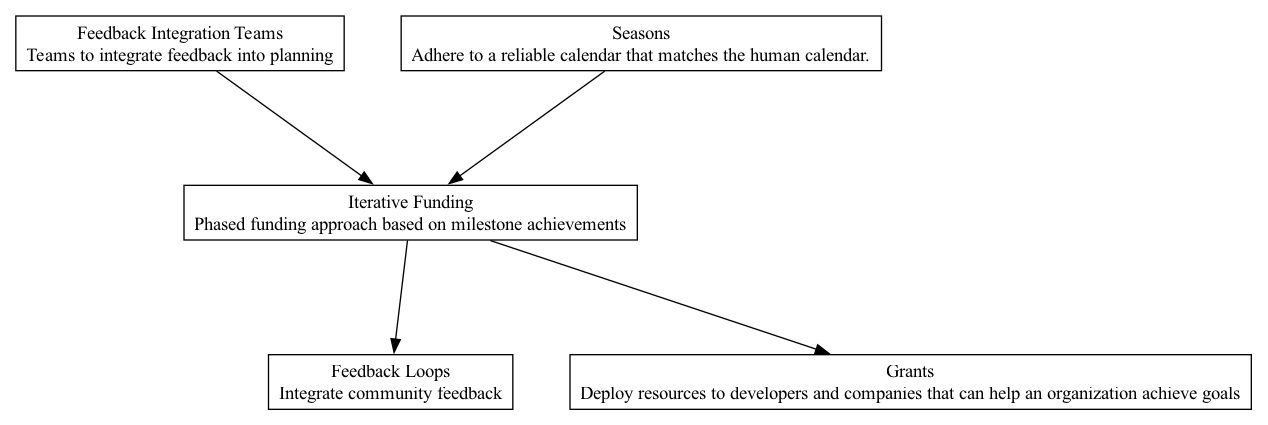Home / Contents / Donations / News / Contact
IFN - Iterative Funding

Supports:
Context:
In a DAO ecosystem where capital allocation and project funding are critical, a mechanism is needed to ensure efficient use of resources, prevent capital drainage, and motivate perpetual project progress.
Problem:
Traditional funding approaches can lead to resource misallocation where projects that do not meet expectations continue to receive funding. There’s also a risk of stalled progress after initial capital injection.
Forces:
- Accountability: Projects must demonstrate progress to maintain trust and continue receiving support.
- Efficiency: Funds should be used optimally, avoiding wastage on underperforming projects.
- Motivation: Continuous funding should motivate consistent effort and progress.
- Adaptability: Funding models should adapt based on project performance and evolving conditions.
Solution:
Adopt an Iterative Funding model where projects receive capital in phases which are contingent upon achieving predetermined, verifiable milestones. Starting with a seed phase, initial funding is provided. Subsequent funding rounds should only disburse upon successful milestone completion, evaluated through clear, predetermined criteria.
Implementation Steps & Techniques:
- Set Clear Milestones: Define specific, measurable, achievable, relevant, and time-bound (SMART) milestones for each phase of the project.
- Use an Escrow System: Leverage smart contracts to hold funds in escrow, releasing them only upon milestone completion.
- Regular Review and Audits: Setup scheduled reviews and audits to ensure milestones are met before releasing the next round of funding.
- Feedback Integration: After each phase, collect and integrate feedback to refine the milestones and funding needs of subsequent phases.
Real-World Examples:
- The Ethereum Foundation: Uses a phased funding approach for its grants, disbursing funds based on completed milestones and demonstrated success.
- MolochDAO: Employs a grants system where continuation of funding is contingent upon showing evidence of progress.
- Dash DAO: Utilizes a proposal system where the network votes to fund new projects in stages based on demonstrable outcomes.
Therefore:
Iterative Funding should be implemented as a core financial governance mechanism within DAOs to enhance capital efficiency, ensure project accountability, motivate continuous progress, and adapt funding to real-world results and feedback.
Supported By:
